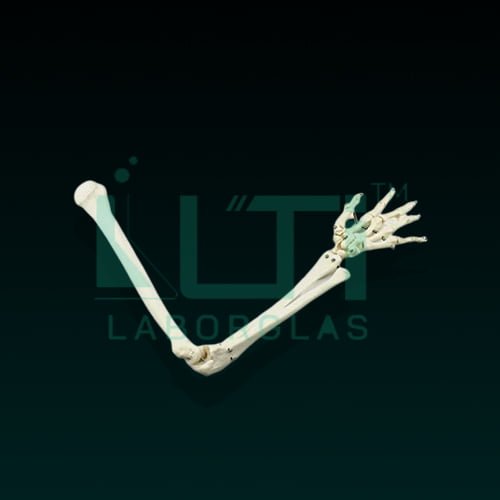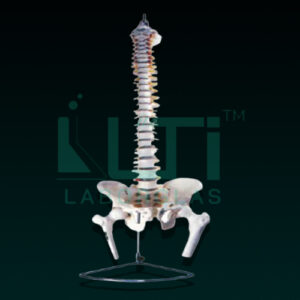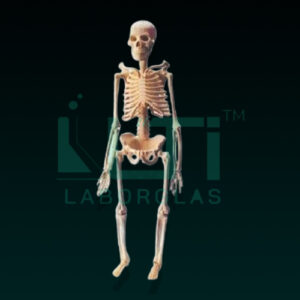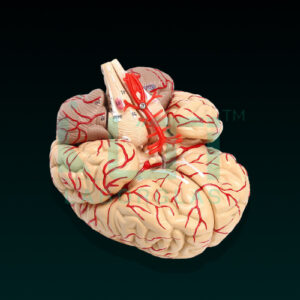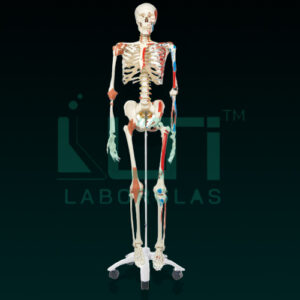- Life size.
- Made of PVC.
- Accurate representation of the joints of arm.
- Realistic upper limb bone model, including clavicle, scapula, humerus, ulna, radius and hand bone (8carpal, 5 metacarpal & 14 phalanges)
- Each bone is separately mold and articulated.
- Key card/manual provided.
A life-size arm bones model serves educational and medical purposes, providing a detailed representation of the bones in the human arm. Here’s a brief overview of its uses:
- Anatomy Education: Used for teaching anatomy, allowing students to study the bones of the arm, including the humerus, radius, ulna, and hand bones.
- Medical Training: Supports medical training programs by offering a realistic representation of arm bones for in-depth study and understanding.
- Orthopedic Studies: Beneficial for orthopedic education, illustrating the structure and relationships between arm bones in the context of musculoskeletal health.
- Rehabilitation Training: Used in physical therapy education to enhance understanding of arm bone anatomy and its relevance to rehabilitation exercises.
- Surgical Planning: Healthcare professionals may use life-size arm bones models for surgical planning and visualization of procedures related to the upper extremities.
- Patient Education: Enables healthcare practitioners to visually explain arm bone conditions, injuries, and treatment options to patients.
- Research Reference: Provides researchers with an accurate model for studying arm bone anatomy, biomechanics, and various aspects related to upper limb function.
- Orthopedic Clinics: Displayed in orthopedic clinics to help patients visualize and understand their arm bone conditions and potential interventions.

